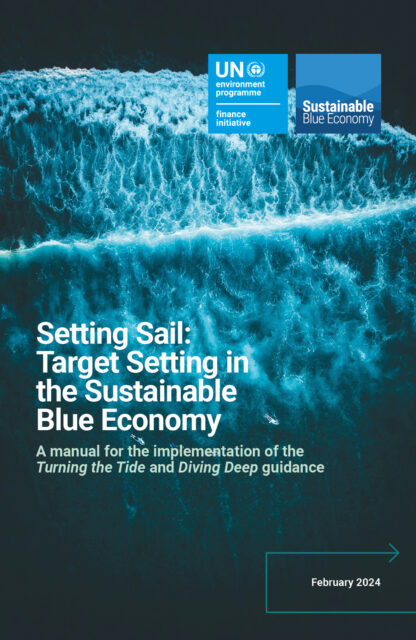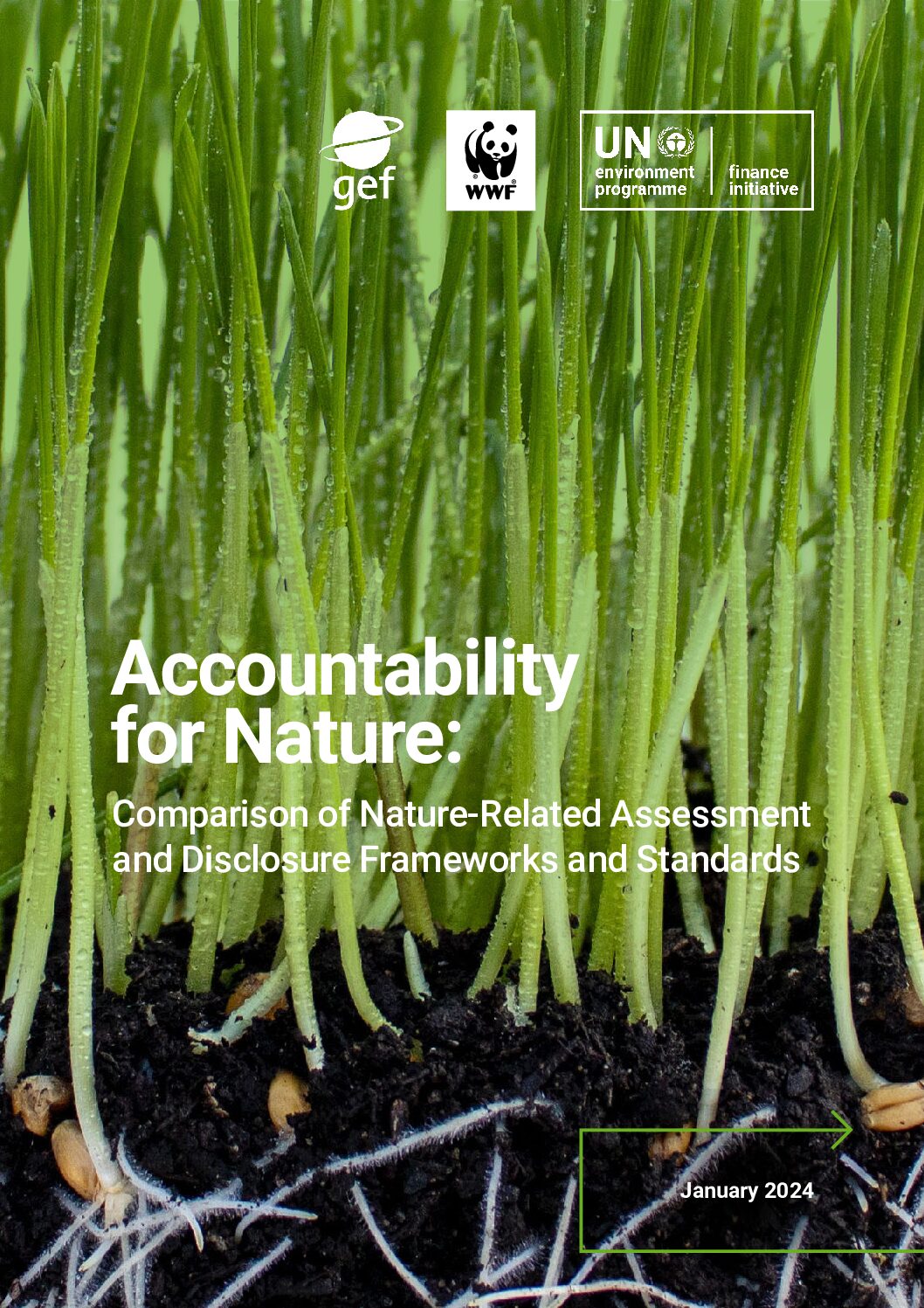
07 March 2023Climate Change, Publications, Risk, TCFD
POPULAR CONTENT

07 March 2023Climate Change, Publications, Risk, TCFD

17 May 2022Events, Roundtables

19 December 2023Banking, Climate Change, Insurance, Investment, Nature, News, Policy, Pollution & Circular Economy, SDGs and Impact, Social

In this review summarizing the achievements of UNEP FI and its network of members during the years 2022 and 2023, find out how UNEP FI continued to help banks and insurers implement the industry frameworks, the Principles for Responsible Banking and the Principles for Sustainable Insurance, as well as the progress of the groundbreaking UN-convened net-zero alliances.

UNEP FI and WWF’s Greening Financial Regulation Initiative have jointly authored a new publication, Navigating Nature-related Regulations for Banks: Mapping…

Building on the Principles for Sustainable Insurance (PSI)’s long-standing work on nature-related issues over the past decade, the PSI Working…

UNEP FI's new Principles for Responsible Banking (PRB) guidance, Sector Action Guidance for Nature: Getting Started in the Agricultural, Forestry and Mining Sectors, aims to translate the recommendations from the PRB Nature Target Setting Guidance into practical, sector-specific actions. Developed in partnership with The Biodiversity Consultancy (TBC), this new PRB Sector Guidance makes explicit the specific priority actions banks can support clients to take in high impact sectors such as mining, agriculture and forestry, and is aimed to empower banks in their risk mitigation efforts across six key commodities, namely bauxite, copper, cattle, wood, soy and palm oil.

This report offers guidance to help boards of financial institutions navigate complexities by providing a clear approach for identifying, managing, and reporting on nature-related risks and opportunities, enabling integration into governance and strategic decision-making. Recent research shows that 85% of the world’s largest companies depend on nature, yet only 2% have boards with relevant expertise. Protecting nature can safeguard businesses and open new opportunities, and this report includes a blueprint outlining key actions to integrate nature-related considerations into executive leadership.

The Kunming-Montreal Global Biodiversity Framework (GBF) provided clear marching orders to align financial flows with the aim of halting and reversing nature loss. Since it was adopted at CBD COP15, various actors within the financial system—governments, central banks, private and public institutions—have further incorporated nature and biodiversity into financial decision-making, including nature-related risk assessment and sustainable investment strategies. This briefing note provides a summary of how the financial system has responded to the GBF over the past two years, following the High-level roadmap: Aligning financial flows with the Kunming-Montreal Global Biodiversity Framework.

Led by UNEP FI and the Finance for Biodiversity Foundation, this discussion paper intends to solicit feedback from the financial sector on a proposed Finance for Nature Positive working model, including definitions and associated practices. It aims to help operationalize the “Nature Positive” concept for the private financial sector.

G20 countries play a pivotal role in the transition to a just and sustainable economy as they represent 85% the…

Through the Sustainable Blue Economy Finance Initiative’s Seafood Finance Working Group, co-convened with WWF, UNEP FI has developed this manual…

This report provides an overview of the key methodological and conceptual trends among the private sector assessment and disclosure approaches on nature-related issues.